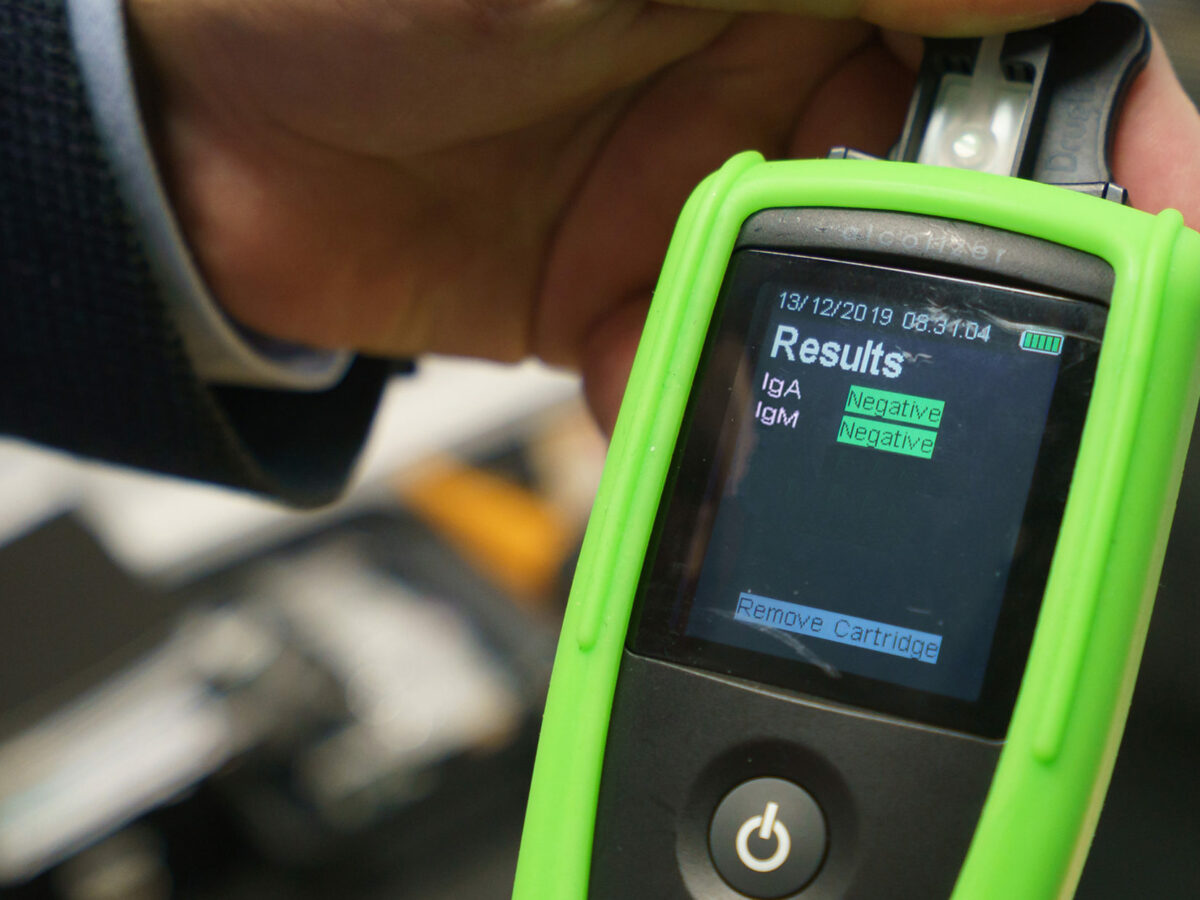Study shows Australian manufacturer’s 10-minute test as sensitive as PCR for detecting Covid

Drug and alcohol testing kit manufacturer Alcolizer has announced successful results from a study of its ten-minute, saliva-based antigen tests for Covid-19.
In a statement on Thursday, the Western Australian company said live field trials at Malaysia’s University Hospital, Sultan Ahmad Shah Medical Centre, showed detection levels “only previously achieved by PCR tests” and sensitivity at least a thousand times greater than commercially available antigen tests.
Unlike PCR tests — described by the Therapeutic Goods Administration as the “gold standard for diagnosis” — Alcolizer’s handheld test does not require a nasal swab. It is effective on asymptomatic patients, according to Alcolizer, which is branding their test “Virulizer”.
Acknowledging that both PCR and antigen test development was a “crowded and competitive” market globally, Alcolizer’s general manager Roger Hunt said there was demand for something less invasive, cheaper and faster than PCR tests, and which could test at the “point of risk”.
PCR tests require lab facilities and results can take up to a day, depending on clinical resourcing. Hunt said his company plans to complement rather than replace such tests.
“The clinical study confirmed our in-house results,” said Dr Murdo Black, the company’s chief scientist, adding that the platform could be modified to detect other infectious agents, proteins and metabolites at levels that would otherwise require a lab.
Alcolizer senior scientist Dr Olga Shimoni added that the company continued to work with Australian experts in preparation for mutations of the virus.
“Most rapid antigen tests cannot distinguish between SARS and COVID 19. The Virulizer antibody captures both the [nucleocapsid] and [spike] proteins — and this gives us confidence our rapid antigen test can detect the Omicron variant, just as it did with Delta.”
Alcolizer has developed its tests in collaboration with University of Technology Sydney nanophotonics experts, led by Distinguished Professor Dayong Jin. The technology is based on “upconversion nanoparticles” used in combination with lateral flow tests, which have long been used in home pregnancy testing kits.
“They are already a well-established technology that can be synthesised and produced at UTS, and now at Alcolizer as well,” Shimoni told create magazine earlier this year.
Alcolizer has received almost $2 million in federal government assistance, including through grants from the Advanced Manufacturing Growth Centre and Innovative Manufacturing CRC.
The company plans to rollout production mid-next year, with a clinical trial in NSW scheduled for early 2022 and tests available to early use customers if emergency use authorisation is given.
Picture: IMCRC
Subscribe to our free @AuManufacturing newsletter here.
Topics Manufacturing News
@aumanufacturing Sections
Analysis and Commentary Awards casino reviews Defence Gambling Manufacturing News Online Casino Podcast Technology Videos

